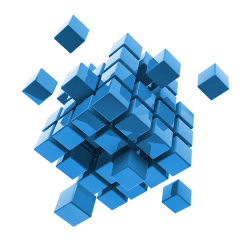
FAYJYWvWQAkiK9x scaled
Nigerian carriers including other African carriers would see a very slow pace of recovery in financial performance from a $1.9 billion loss in 2021 to a $1.5 billion loss in 2022, according to the International Air Transport Association (IATA) at its ongoing 77th Annual General Meeting World Air Transport Summit (WATS) in Boston. African airlines face slow recovery despite reduced losses.
This came as the Director-General of IATA, Willie Walsh expressed the joy that the COVID-19 pandemic that essentially brought global aviation to a halt in April 2020 is now virtually endemic. “We are also seeing improvements in finances. We expect 2021 losses to be nearly $52 billion, cut dramatically from the $138 billion lost in 2020. Losses will further reduce in 2022 to about $12 billion. In total, the COVID-19 crisis will cost aviation $201 billion in losses before we return to profitability in 2023. We are past the deepest point of the crisis. While serious issues remain, the path to recovery is coming into view”.
“And we must walk that path with our partners across the value chain and with governments. Some four percent of global GDP, 88 million jobs, and the freedom of billions of people to fly rests on the efforts of many partners. Our resilience will be tested as we work together to keep aviation safe and secure, to manage the risks of COVID-19, and to make aviation sustainable”.
Slow vaccination hinders recovery
IATA equally stated that low vaccination rates across the continent were expected to severely dampen demand throughout 2022, stressing that the slight improvement is built on the expectation of some recovery in intra-Africa travel and travel to some tourist destinations with relatively higher vaccination rates.
Extremely slow vaccination rates are hindering Africa’s recovery from the COVID-19 pandemic, the continent’s main airline representative body said. The umbrella body for the continent’s airlines, the African Airlines Association (AFRAA) had recently disclosed that surging infection rates were cutting into the ability of airlines to increase passenger numbers and reinstate routes, the African Airlines Association (AFRAA) said.
In Africa, just 1.85 percent of the population has been fully vaccinated, compared to around 24.6 percent globally. The number of deaths continues to rise, while vaccination is progressing at a snail’s pace, thus causing concerns among the travel, tourism, and hospitality sectors on recovery.
AFRAA reported that August air passenger traffic in Africa was at 46.8 percent of August 2019 levels, while capacity was at 54.6 percent of pre-pandemic levels. Collective domestic air traffic in Africa in August was 58.9 percent of August 2019 levels compared to 22.7 percent for intra-Africa flying and 18.4 percent for intercontinental flights.
Constrained frequency
Almost 78 percent of August 2019’s intercontinental routes were being operated again in August 2021, although frequency and capacity remained constrained, AFRAA said. Intercontinental traffic rose 3.1 percent month-over-month from July to August.
Airlines that added new intercontinental routes to their operations in August included Ethiopian Airlines, Royal Air Maroc, and Kenya Airways. Notably, AFRAA said, EgyptAir, Ethiopian Airlines, Royal Air Maroc, and RwandAir are now operating to about 90 percent of their pre-COVID-19 intercontinental destinations.
Southern African market to recover faster, Ethiopia sees growth
Domestic aviation markets in Southern Africa are expected to recover to 2019 levels by 2023 and international travel by 2024. Ethiopian Airlines despite some challenges seems to be picking up more than every other airline in the region, as boarding to, from, and within Ethiopia in June 2021 were only 30 percent less than in June 2019, a significant improvement on the 47 percent drop in the same January period. Ethiopia’s June performance was well ahead of the overall 66.6 percent drop (compared to 2019) recorded for the entire African continent. Passenger demand is not expected to recover to pre-COVID levels for the continent until at least 2023.
Nigerian carriers lag behind others
The Nigerian carriers are still lagging behind on intercontinental routes as non of the country’s airlines currently operate outside the shores of the country while the domestic market is gradually picking up but not up to the pre-COVID-19 level. Only Air Peace operates regionally competing with strong regional carriers like the Lome-based ASKY and Accra-based Africa World Airlines (AWA) including big regional carriers like Air Maroc, Kenya Airways, Ethiopian Airlines, RwandAir among others that have eaten deep into Nigeria’s aviation travel market.
Views: 2



